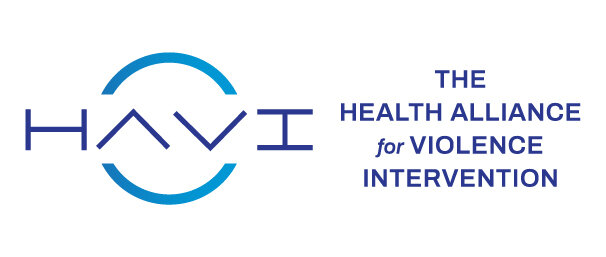Hospital-based Violence Intervention Programs (HVIPs) & Trauma Recovery Centers (TRCs) Keys To Collaboration Brief
The U.S. has experienced epidemic levels of interpersonal violence, largely concentrated in communities that have also suffered from decades of systemic neglect and harm. It will take continued successful collaboration among a diverse ecosystem of violence prevention strategies and treatment models—each with their own complementary strengths—to address the widespread devastation this systemic community violence has caused.
The following brief is a collaboration between The Health Alliance for Violence Intervention (The HAVI) and the National Alliance of Trauma Recovery Centers (NATRC)—two national networks that have developed models of care for victims of violence in underserved communities. These models were developed to reduce racial inequities and barriers to accessing effective healing support after trauma. They do so by offering intervention for victims at a crucial time of need and by promoting healing, which also impacts families and communities. To follow are insights, not only about The HAVI’s Hospital-based Violence Intervention Program (HVIP) model and the NATRC’s Trauma Recovery Center (TRC) model, but also the ways in which these two interventions complement one another to address the multitude of needs of victims of violence.
Highlights from the Webinar Q&A
-
Adrian Sanchez, the HAVI: VOCA is Victims of Crime Act. This is a federal funding source that supports state and local programs to serve victims of violence.
-
Michael Ordonez, University Hospital: Yes, University Hospital leads its HVIP, which Newark Community Street Team is a contracted partner embedded within our hospital team. Newark Community Hospital also has another partnership with Newark Beth Israel Hospital in the South Ward of Newark. Only the University Hospital is a Level 1 Trauma Center, leading us to meet the more severely injured patients at University Hospital.
-
Michael Ordonez, University Hospital: University Hospital uses both Community Health Worker and Violence Prevention Professional training certifications, in anticipation of Medicaid reimbursements being signed into law in NJ and follows the HAVI standards for HVIPs.
-
Angelica Maury - NCST TRC: NCST has a partnership with University Hospital and Newark Beth Israel for our Hospital-based violence Intervention Program.
-
Michael Ordonez, University Hospital: I believe care should be patient-centered, so we should inform them of their options for them to decide and take that opportunity to weigh the benefits of each
-
Michael Ordonez, University Hospital: University Hospital TRC receives both hospital and community referrals. We use our Electronic Medical Record for our patients and accept referrals by email by other community providers and community members. Community Outreach and engagement is important in community education on services.


